KATHMANDU: Experts and participants have underscored the urgent need to bridge gaps in the implementation of Sustainable Development Goals (SDGs) and to harness technology more effectively in the fight against climate change, with a particular focus on Kathmandu.
Taking part in an interaction “Climate Change Challenges in Developing Resilient Infrastructure,” jointly organized by ISET Nepal and the Asia Foundation at the Pavilion Hall in Kathmandu, they said addressing these challenges was essential for advancing sustainable development and enhancing the city’s resilience to climate impacts.
They highlighted several critical issues, including outdated drainage systems and insufficient data, which are significantly impeding effective planning and project execution.
Speakers representing the government, media, development sectors, universities, and the World Bank, among others, discussed the state of Nepal’s infrastructure sector, ongoing development projects, and the impact of natural disasters and climate change and emphasized the importance of addressing Nepal’s multi-hazard climate risks.
They raised concerns about the frequent delays and quality issues despite significant government investment in roads, hydroelectricity, and transportation.
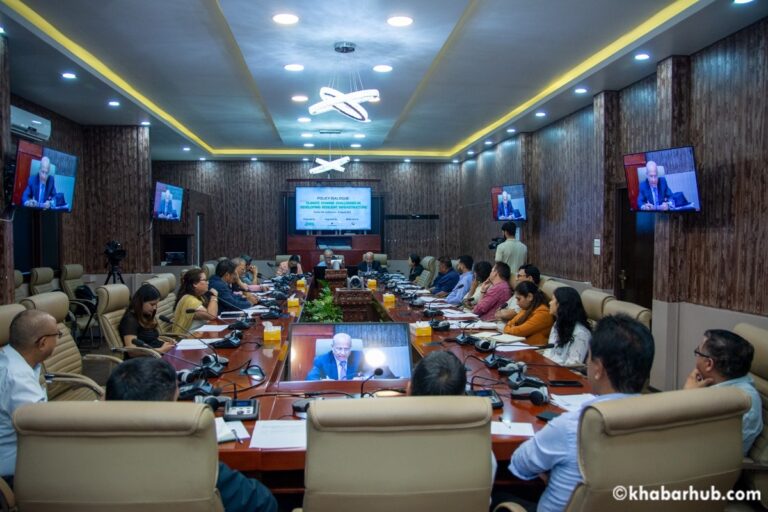
In the program aimed at identifying risks to infrastructure and collaboratively developing strategies to bolster it against climate-related threats, participants advocated for a targeted approach to effectively mitigate these risks, given Nepal’s status as a major global hotspot for climate change.
Dr. Bindu Lohani, former Vice President of the Asian Development Bank (ADB), In his keynote address, discussed the gaps in implementing Sustainable Development Goals (SDGs) and the underutilization of technology in addressing climate change, with a particular focus on Kathmandu.
He pointed out critical issues such as outdated drainage systems and limited data that hinder effective planning and project execution.
Dr. Lohani warned that by 2050, 60-70 percent of the global population will live in urban areas, worsening climate-related challenges.
He proposed replacing public buses and vehicles with rail systems and other sustainable transport options, improving water security, and creating green spaces through strategic financing.
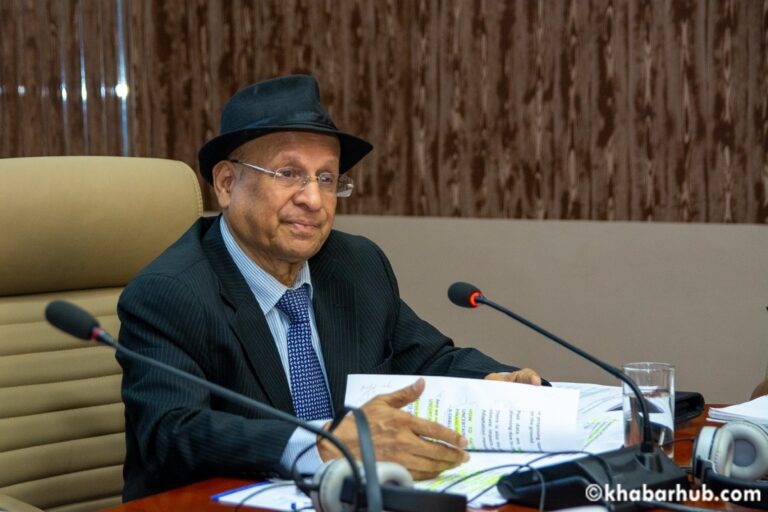
Dr. Lohani also urged viewing climate change challenges as opportunities for innovation and called for a transformative approach to enable meaningful progress in Nepal’s climate efforts.
Ajay Dixit, Executive Director of ISET Nepal, emphasized that the proliferation of small development projects has heightened the government’s responsibility.
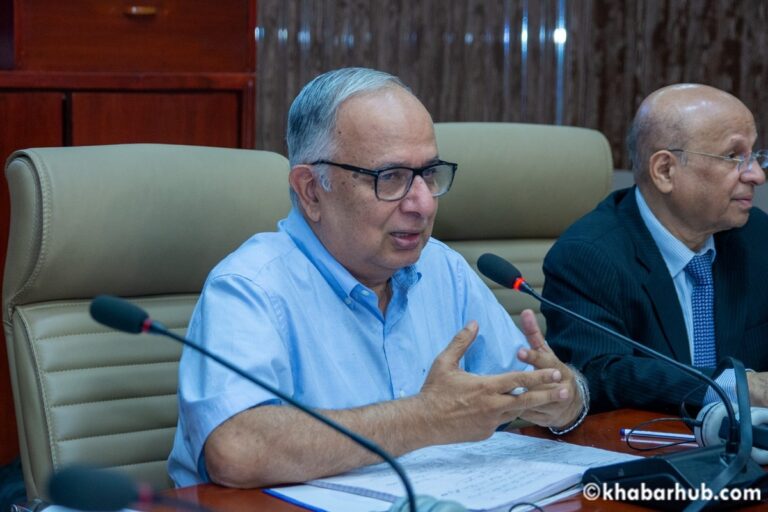
He underscored the critical need for thorough planning to effectively address the impacts of climate change.
Geeta GC, an expert in infrastructure development, emphasized that engineers in the public sector often lack in-depth knowledge of climate resilience and are not fully aware of global issues.
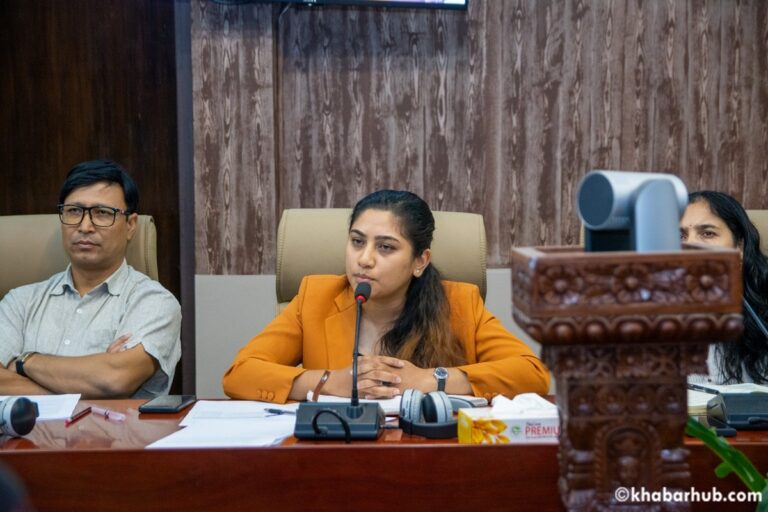
She stressed the need for capacity development to address this gap.
According to her, updating the curriculum is crucial, and climate change education should start at the school level to ensure that students are well-prepared to tackle the challenges and seize the opportunities related to climate change.
Similarly, media professional Ramesh Bhushal criticized the shift from a civil society to one focused on appearances, where people are often pressured to conform rather than reveal their true selves.
He noted that while the media has the power to address issues, it tends to sensationalize fear and terror around natural disasters like floods, neglecting the crucial aspects of managing such events.
Bhushal also highlighted the persistent failures of government projects in Nepal, citing the Melamchi Project as an example of the government’s failure to learn from past mistakes, and he pointed out that the media’s potential to address these problems has not been effectively utilized.
Taking part in the discussion, Sadichchya Shrestha, lecturer at Himalayan College of Engineering, highlighted the need to tackle climate change at both household and community levels.
She suggested developing garden spaces at homes for local sustainability and installing water recharging systems to capture and store rainwater, reducing street flooding.
Shrestha emphasized that innovative adaptation and mitigation strategies are crucial for effective climate resilience and improving environmental outcomes.
Suresh Pandit, Climate Infrastructure Specialist, suggested the need for a locally tailored definition of resilience to better suit Nepal’s context and emphasized the importance of implementing Environmental Impact Assessments (EIA).
Chandra Shrestha, Resilient Infrastructure Specialist, noted that Nepal’s federalization has led to fragmented projects and poorly managed urbanization, with fundamental issues yet to be addressed.
Santosh Shrestha, Lead Consultant at the World Bank, stressed the necessity of understanding resilience and retrofitting within Nepal’s specific context.
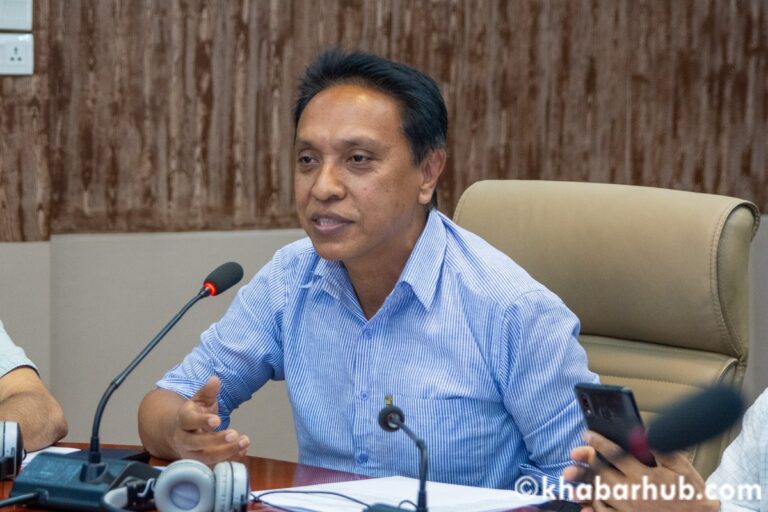
Naresh Rimal of ISET Nepal advocated for focusing on resilient communities, understanding their aspirations, and ensuring policy compliance, including thorough EIA and CIAA processes and strategic implementation.
Additionally, Professor at the Tribhuvan University, Narayan Gopal Ghimire highlighted the challenges of Nepal’s road infrastructure, pointing out that the country’s crooked topography leads to poorly designed roads that exacerbate water collection issues and undermine resilience.Top of Form
Earlier, Anustha Shrestha, the Project Coordinator of ISET Nepal, delivered the welcome remarks and briefed participants on the issues to be discussed.
Ranjan Bhatta, Senior Climate Action Officer at The Asia Foundation, deemed the dialogue productive, noting that such discussions are vital for identifying and addressing development challenges and exploring solutions.
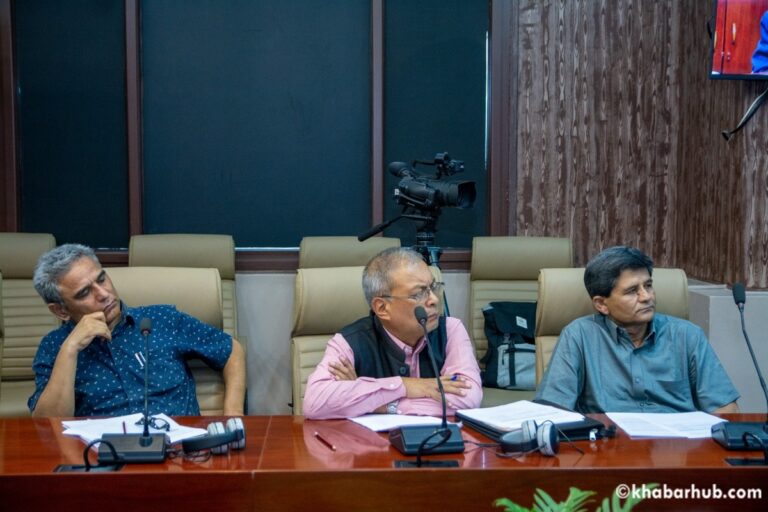
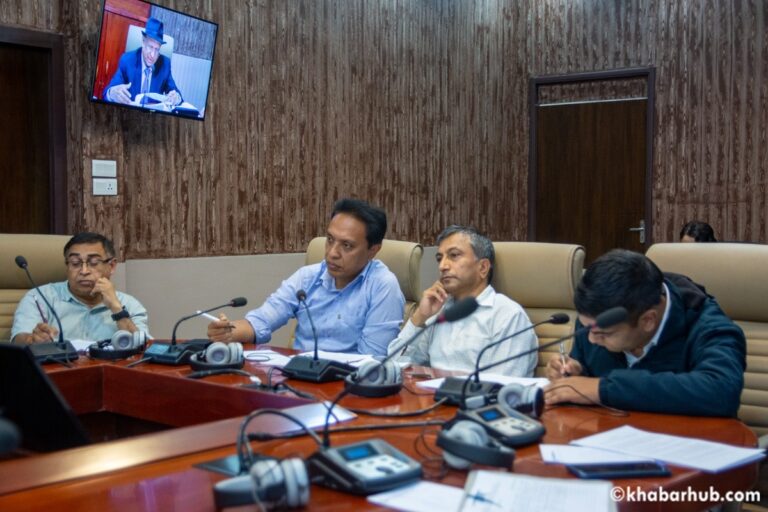
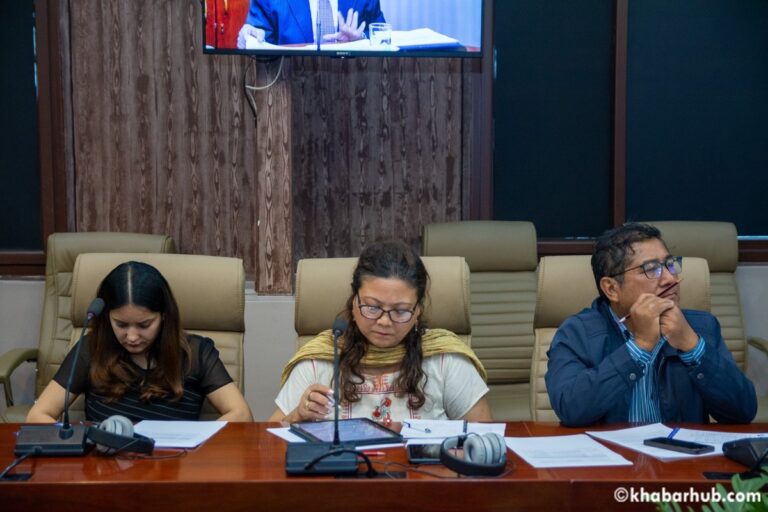
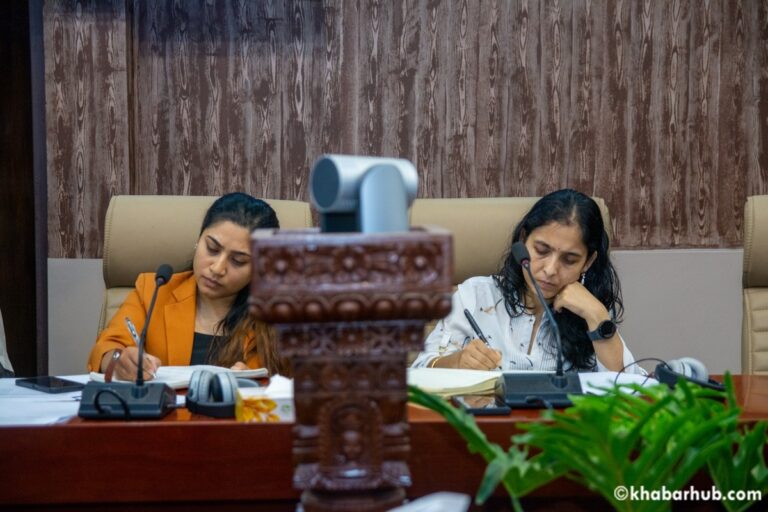
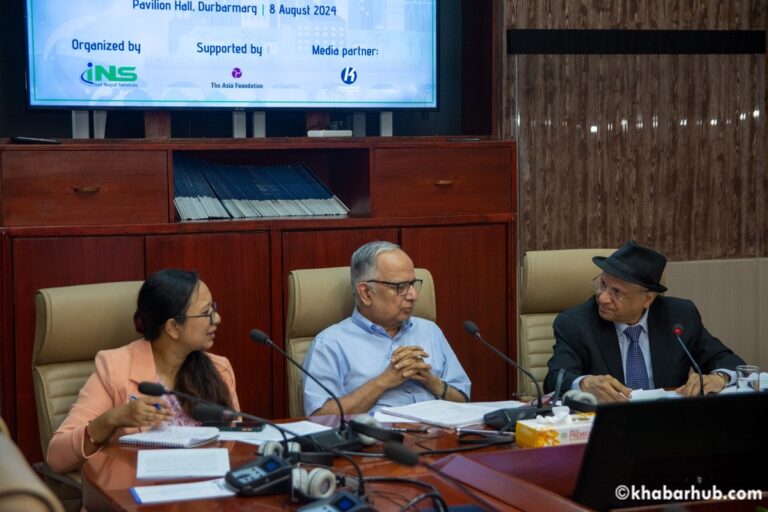




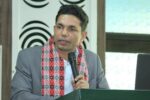
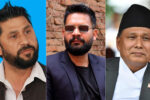

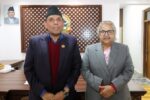

Comment